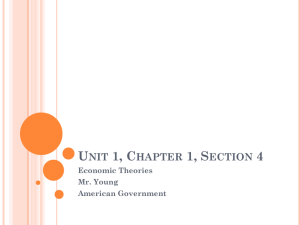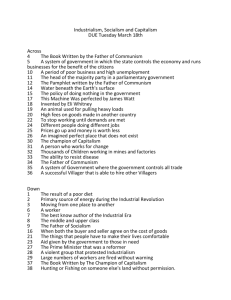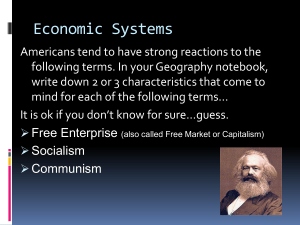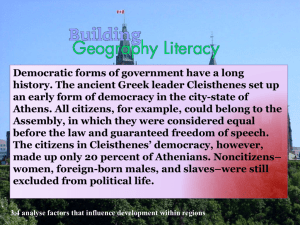Communism v Socialism
advertisement
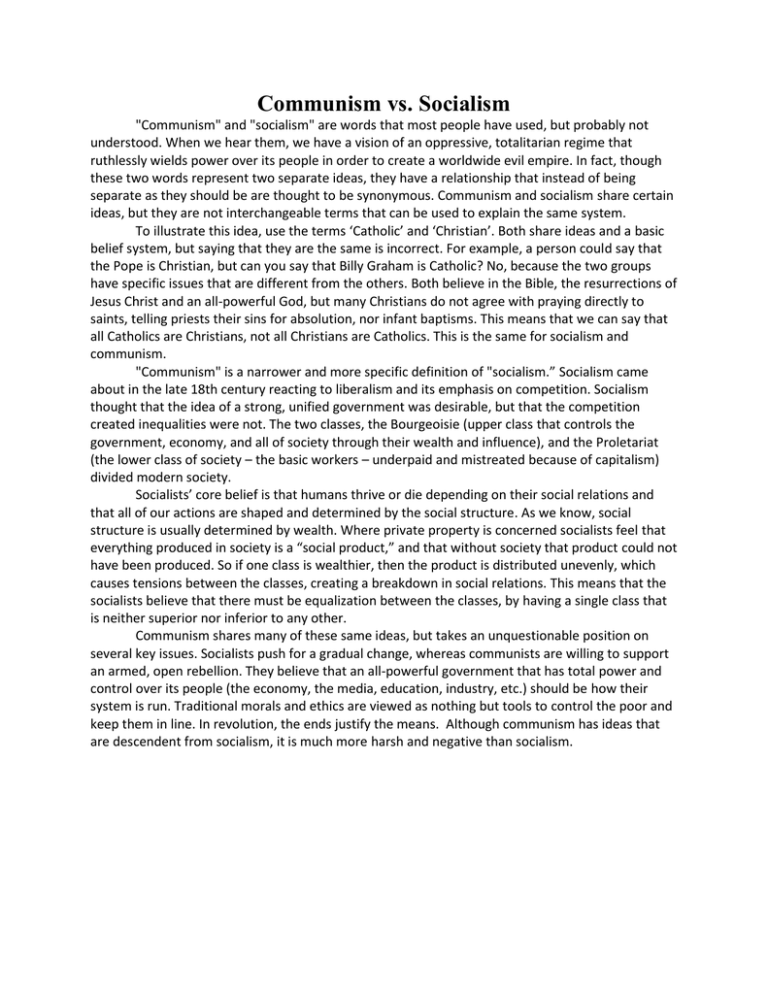
Communism vs. Socialism "Communism" and "socialism" are words that most people have used, but probably not understood. When we hear them, we have a vision of an oppressive, totalitarian regime that ruthlessly wields power over its people in order to create a worldwide evil empire. In fact, though these two words represent two separate ideas, they have a relationship that instead of being separate as they should be are thought to be synonymous. Communism and socialism share certain ideas, but they are not interchangeable terms that can be used to explain the same system. To illustrate this idea, use the terms ‘Catholic’ and ‘Christian’. Both share ideas and a basic belief system, but saying that they are the same is incorrect. For example, a person could say that the Pope is Christian, but can you say that Billy Graham is Catholic? No, because the two groups have specific issues that are different from the others. Both believe in the Bible, the resurrections of Jesus Christ and an all-powerful God, but many Christians do not agree with praying directly to saints, telling priests their sins for absolution, nor infant baptisms. This means that we can say that all Catholics are Christians, not all Christians are Catholics. This is the same for socialism and communism. "Communism" is a narrower and more specific definition of "socialism.” Socialism came about in the late 18th century reacting to liberalism and its emphasis on competition. Socialism thought that the idea of a strong, unified government was desirable, but that the competition created inequalities were not. The two classes, the Bourgeoisie (upper class that controls the government, economy, and all of society through their wealth and influence), and the Proletariat (the lower class of society – the basic workers – underpaid and mistreated because of capitalism) divided modern society. Socialists’ core belief is that humans thrive or die depending on their social relations and that all of our actions are shaped and determined by the social structure. As we know, social structure is usually determined by wealth. Where private property is concerned socialists feel that everything produced in society is a “social product,” and that without society that product could not have been produced. So if one class is wealthier, then the product is distributed unevenly, which causes tensions between the classes, creating a breakdown in social relations. This means that the socialists believe that there must be equalization between the classes, by having a single class that is neither superior nor inferior to any other. Communism shares many of these same ideas, but takes an unquestionable position on several key issues. Socialists push for a gradual change, whereas communists are willing to support an armed, open rebellion. They believe that an all-powerful government that has total power and control over its people (the economy, the media, education, industry, etc.) should be how their system is run. Traditional morals and ethics are viewed as nothing but tools to control the poor and keep them in line. In revolution, the ends justify the means. Although communism has ideas that are descendent from socialism, it is much more harsh and negative than socialism.



